Introduction
In the dynamic world of technology, staying ahead of the curve is essential for career advancement. Python, one of the most popular programming languages, is at the forefront of this evolution, powering everything from web development to data analysis and artificial intelligence. For professionals looking to solidify their expertise, obtaining a Python certification is a strategic move. This blog will explore the top Python certifications to have in 2025, guiding you through the best options available, their relevance in the industry, and how you can enhance your skills with an Online class for Python and a comprehensive Python certification program.
Why Python Certification Matters
Python certifications validate your proficiency and knowledge in the language, providing a competitive edge in the job market. As companies increasingly rely on Python for their technological needs, certified professionals are in high demand, making it a valuable asset for anyone looking to advance in the tech industry. A certification not only boosts your resume, showcasing your expertise to potential employers, but also enhances your understanding of Python’s diverse applications, from web development to data science and automation. By acquiring a certification, you gain a structured learning experience that sharpens your skills, ensuring that you are well-equipped to handle real-world challenges.
This formal recognition of your ability demonstrates your commitment to professional growth and your ability to stay current with the latest industry trends. Furthermore, it opens up new career opportunities, increases your earning potential, and places you in a favorable position for roles that require advanced programming skills. Whether you’re looking to transition into a new field or climb the career ladder, a Python certification can be the stepping stone to a successful future in the tech world.
Top Python Certifications in 2025
Certified Entry-Level Python Programmer (PCEP)
The PCEP certification is ideal for beginners who are just starting their Python journey. It covers the fundamentals of Python programming, including syntax, data types, control structures, and functions. This certification serves as a stepping stone to more advanced Python certifications.
- Course Content: Basic syntax, conditional execution, loops, and data types.
- Real-World Application: Prepares you for entry-level roles in Python development.
- Industry Relevance: Recognized globally as a foundational certification for Python developers.
Certified Associate in Python Programming (PCAP)
For those with a basic understanding of Python, the PCAP certification is the next logical step. It delves deeper into object-oriented programming, modules, exceptions, and file operations.
- Course Content: OOP principles, modules, error handling, and file I/O.
- Real-World Application: Equips you with the skills needed for junior developer roles.
- Industry Relevance: Validates your ability to write intermediate-level Python programs.
Certified Professional in Python Programming 1 & 2 (PCPP1 & PCPP2)
The PCPP1 and PCPP2 certifications are designed for professionals aiming to demonstrate advanced Python skills. They cover a wide range of topics including advanced OOP, GUI programming, network programming, and database access.
- Course Content: Advanced OOP, network programming, GUI development, and database access.
- Real-World Application: Prepares you for senior roles in software development and data analysis.
- Industry Relevance: Highly valued by employers for demonstrating comprehensive Python expertise.
How to Prepare for Python Certifications
Preparing for Python certifications requires a structured approach that focuses on mastering both the theoretical and practical aspects of the language. Start by gaining a strong understanding of Python’s core concepts, including syntax, data types, control structures, functions, and object-oriented programming. Build a solid foundation in these fundamental areas, as they form the basis of most certification exams. Once you’ve grasped the basics, dive deeper into advanced topics like file handling, error handling, regular expressions, and libraries such as NumPy, Pandas, and Flask for more specialized applications in data analysis and web development.
A key aspect of preparation is hands-on practice. Regularly write Python code to solidify your understanding and improve problem-solving skills. Try working on small projects, participating in coding challenges, and contributing to open-source projects to gain practical experience. Leverage resources like online coding platforms, tutorials, and Python documentation to ensure you’re up to date with the language’s latest features.
Also, make use of official Python certification study guides and practice exams to familiarize yourself with the exam format and the type of questions you might encounter. This will help you assess your progress and identify any areas that require more focus. Join online communities, attend coding workshops, and take part in forums where fellow learners and certified professionals share insights and tips.
Online Class for Python
Enrolling in an online class for Python is one of the most effective ways to prepare for certification exams. These classes offer structured learning paths, hands-on projects, and expert guidance to help you master Python.
- Benefits:
- Flexibility: Learn at your own pace, from the comfort of your home.
- Comprehensive Curriculum: Covers all topics required for certification exams.
- Interactive Learning: Engage in live sessions, discussions, and practice exercises.
Python Certification Program
A Python certification program provides a comprehensive learning experience, combining theoretical knowledge with practical skills. These programs often include:
- Structured Courses: Detailed modules covering all aspects of Python.
- Practical Projects: Real-world projects to apply your learning.
- Assessment and Feedback: Regular assessments to gauge your progress and provide feedback.
Real-World Applications of Python Certifications
Python certifications provide individuals with a robust skill set that is highly applicable in various real-world scenarios across multiple industries. One of the most common areas where Python is utilized is in data science and analytics. Certified Python professionals can harness libraries like Pandas, NumPy, and Matplotlib to clean, analyze, and visualize large datasets, making valuable insights accessible to businesses and organizations. Python’s ability to handle big data and integrate with tools like Jupyter Notebooks makes it a go-to language for data scientists looking to make data-driven decisions.
Data Analysis
With a Python certification, you can pursue roles in data analysis, where Python’s powerful libraries like Pandas, NumPy, and Matplotlib are widely used for data manipulation and visualization.
Web Development
Python’s frameworks such as Django and Flask are popular for Web development. A certification validates your ability to build and maintain robust web applications.
Artificial Intelligence and Machine Learning
Python is the language of choice for AI and ML due to its simplicity and extensive libraries. A certification in Python can open doors to exciting opportunities in these cutting-edge fields.
Step-by-Step uide to Becoming Certified in Python
Assess Your Current Knowledge
Before diving into the world of Python certification, it’s crucial to assess your current proficiency level. Take some time to reflect on your experience with Python and identify areas where you may need improvement. If you are a beginner, you may want to start with a foundational certification, while if you already have some experience, an intermediate or advanced level certification might be more appropriate. Understanding your current knowledge will help you select the most suitable certification path and avoid wasting time on material you already know.
Choose the Right Certification
Selecting the right Python certification is a critical step in your preparation. Certifications come in various levels, from beginner to advanced, and specialize in different aspects of Python such as web development, data analysis, Machine learning, or automation. Consider your career goals and the specific skills you wish to develop. If you aim to become a data scientist, certifications focused on libraries like Pandas, NumPy, and Scikit-learn would be valuable. On the other hand, if web development is your focus, Python certifications related to Django or Flask might be more suitable.
Enroll in an Online Class
To ensure structured learning, it is highly recommended to enroll in an online class or course designed to prepare you for your chosen certification. Online platforms like Coursera, Udemy, or edX offer a variety of Python courses, from beginner to advanced levels. These classes provide comprehensive curricula, expert instructors, and often include hands-on exercises to reinforce your learning. With a clear structure and expert guidance, you can stay focused and make steady progress towards achieving your certification.
Complete a Certification Program
Participate in a formal Python certification program to gain in-depth knowledge of the language. Certification programs typically offer both theoretical and practical lessons, providing you with the tools to understand key Python concepts thoroughly. Many programs offer project-based learning, which allows you to apply what you’ve learned in real-world scenarios. Completing the certification program ensures that you are well-prepared for the exam and gives you the confidence needed to apply Python skills in professional environments.
Practice with Real-World Projects

The best way to reinforce your learning and prepare for the certification exam is through hands-on practice. Apply the skills you’ve learned by working on real-world projects that mirror the type of challenges you’ll face in your future career. These projects can range from simple automation scripts to more complex web applications or data analysis tasks. Not only will these projects help you solidify your understanding, but they will also provide valuable experience that you can showcase on your resume or portfolio.
Prepare for the Exam
Once you have completed your learning program and practical projects, it’s time to prepare for the certification exam. Use study guides, practice tests, and revision sessions to gauge your understanding of the material and identify any areas that need more attention. Focus on mastering key concepts such as Python syntax, data structures, and advanced libraries related to your field. Practice exams are especially beneficial as they help familiarize you with the exam format and time constraints, boosting your confidence before the real exam.
Take the Exam
Once you feel ready, register for the certification exam and take the test. Make sure to review all the exam details, such as the format, time limit, and any prerequisites. During the exam, manage your time wisely and carefully read each question to ensure you fully understand what is being asked. Don’t rush through the exam; take your time to apply the knowledge you’ve gained through your studies and practice.
Update Your Resume
After successfully passing the certification exam, it’s time to update your resume and LinkedIn profile to reflect your new qualification. Be sure to mention your Python certification in the skills section and include any relevant projects or experience gained during your studies. Highlighting this certification on your resume will make you stand out to potential employers and demonstrate your commitment to professional growth. Additionally, don’t forget to share the news with your professional network on LinkedIn to increase your visibility in the job market.
By following these steps, you will be well on your way to earning your Python certification and enhancing your career prospects in the tech industry. The process involves thorough learning, hands-on practice, and strategic preparation, ensuring that you are fully equipped to tackle any Python-related challenges in your professional journey.
Conclusion
In 2025, a Python certification is more than just a credential; it’s a testament to your commitment to professional growth and excellence in one of the most versatile programming languages. Whether you’re a beginner or an experienced developer, there’s a Python certification that can help you achieve your career aspirations.
Take the first step towards enhancing your career by enrolling in an online class for Python and a Python certification program at H2K Infosys. Our comprehensive courses are designed to equip you with the skills and knowledge needed to excel in the ever-evolving tech industry.
Key Takeaways
- Python certifications are essential for validating your expertise in the language.
- The top certifications for 2025 include PCEP, PCAP, PCPP1, and PCPP2.
- Enroll in an online class for Python and a Python certification program to prepare effectively.
- Real-world applications of Python certifications include data analysis, web development, and AI/ML.
- Follow a step-by-step guide to become certified and advance your career.










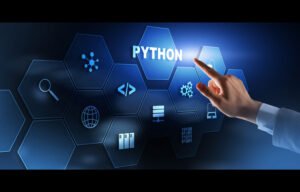

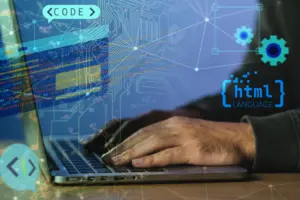
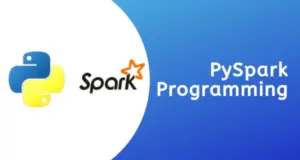



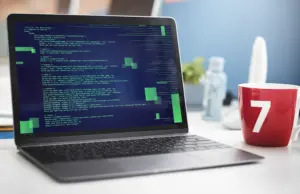

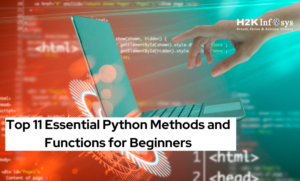







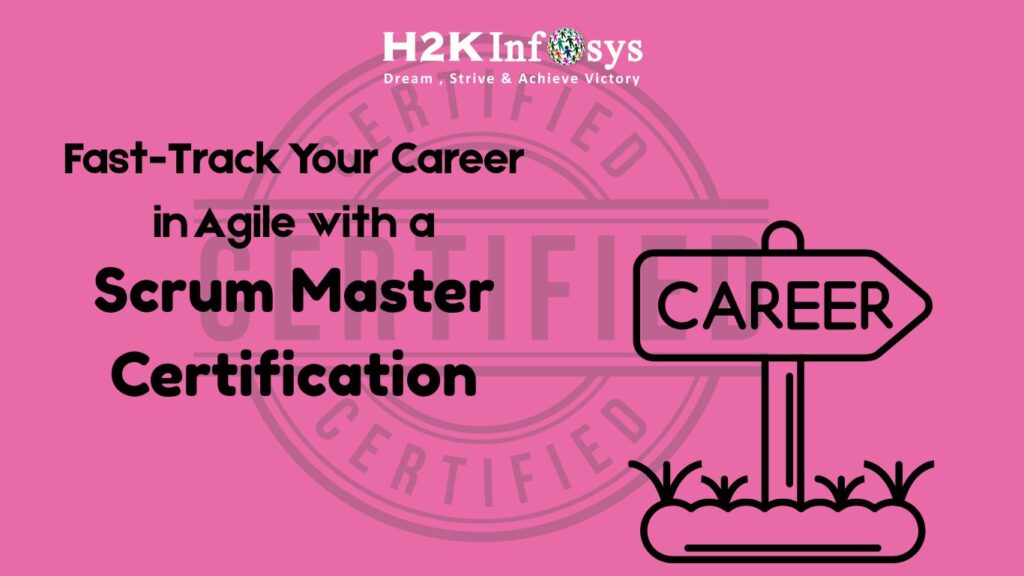





One Response